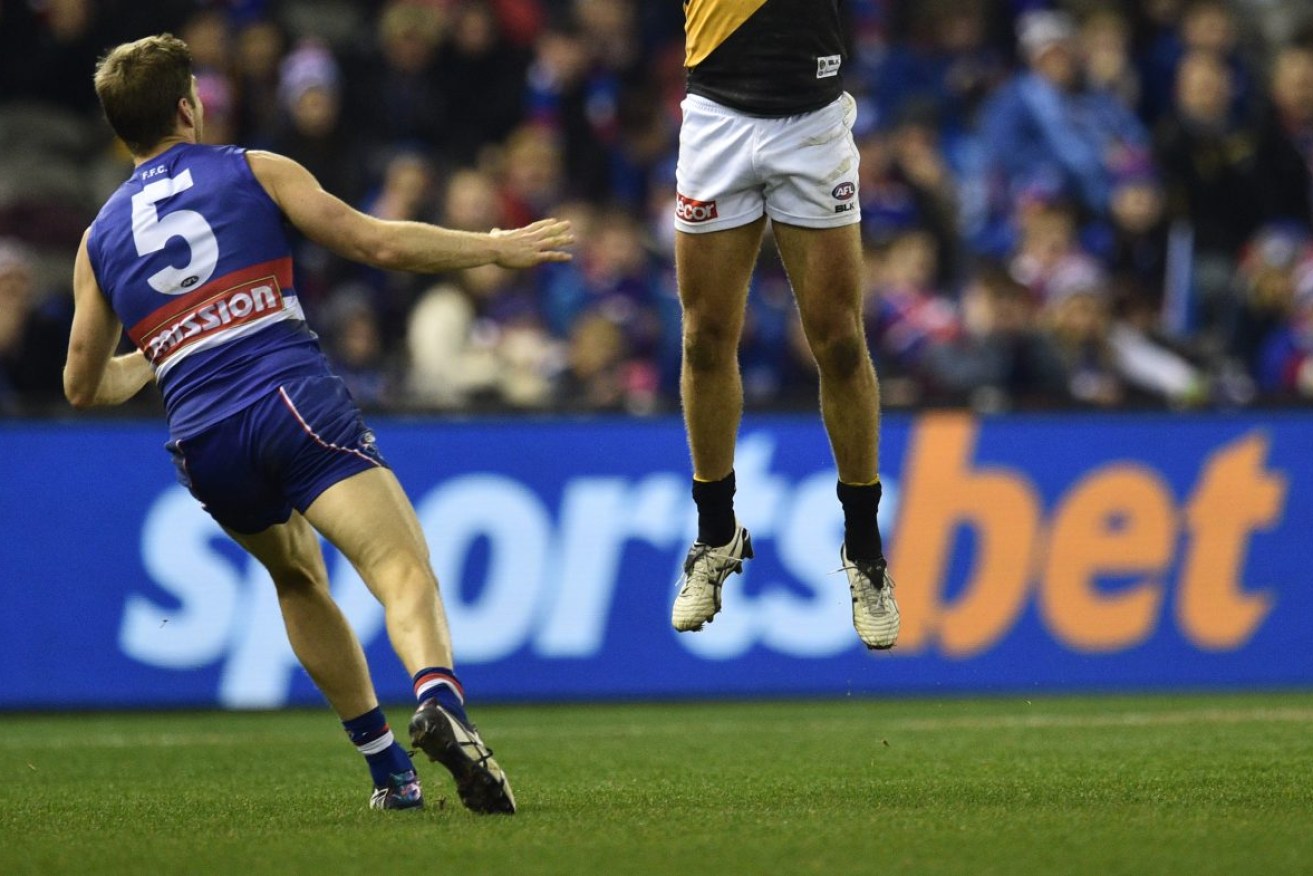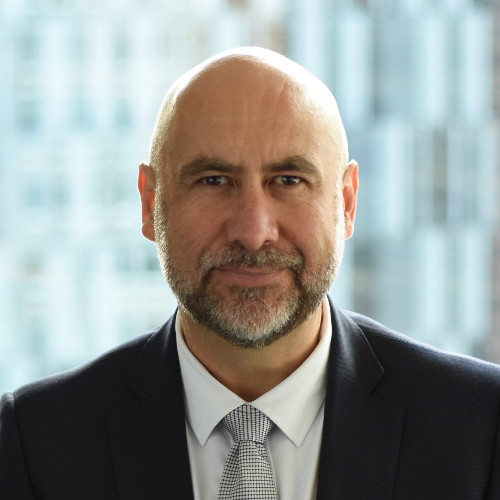‘Bombarded’: SA bid to rein in gambling ads
The state’s Liquor and Gambling Commissioner has called for online and TV betting ads to be reined in nationally, citing public complaints about the “incessant nature of gambling advertisements”.


Photo: AAP/Julian Smith
In a submission to federal parliament’s Standing Committee on Social Policy and Legal Affairs, South Australian Liquor and Gambling Commissioner Dini Soulio said advertising for sports betting, wagering and other gambling has “become ubiquitous in recent years” and is “dominating major commercial television”.
He said while regulation in South Australia was more specific than other jurisdictions, the available research “suggests that current gambling advertising restrictions are ineffective and that further restrictions are required”.
“I am of the view that further steps need to be taken to restrict the amount of gambling advertising across a range of media channels to prevent exposure to advertising which normalises gambling for young people, or could lead to an increase in gambling behaviour and gambling related harm,” Soulio said in a submission last November.
“A national approach should be considered for banning, or heavily restricting the advertising of online gambling products across a range of media, most importantly on television (including commercial free-to-air and subscription television), as well as streaming services and digital streaming platforms such as YouTube.”

Dini Soulio. Photo: LinkedIn
Soulio said YouTube was of particular concern due to a “saturation of gambling advertising… often occurring during programs intended for and attractive to a young adolescent audience”.
He said his office had received “a number of complaints” from the South Australian public about the volume of gambling advertising.
“The concerns largely relate to the incessant nature of gambling advertisements, with people describing how they feel ‘bombarded’ by such advertisements,” Soulio wrote.
“This suggests that current gambling advertising is inconsistent with community expectations and that further restrictions are needed across a range of media channels.”
Soulio also cited a 2021 CQ University survey which found 77 per cent of South Australians would support government intervention to reduce the amount of sports betting advertising. The survey polled 2030 people.
Currently, federal regulations set a range of restrictions on when gambling advertising can be shown on commercial television.
For live sporting events between 5am and 8.30pm, gambling advertising is prohibited from five minutes before the start of play until five minutes after live coverage of play.
For live sporting events between 8.30pm and 5am, gambling advertising is allowed during commercial breaks and before and after the game, but not during play.
Gambling advertising is also prohibited between 5am and 8.30pm during programs “principally directed” at children, as well as any program rated G or lower that runs between 6am and 8.30am or 4pm and 7pm.
South Australian law sets even tighter restrictions, with gambling advertising prohibited on TV between 4pm and 7.30pm from Monday to Friday, regardless of the program classification.
Soulio said South Australia’s gambling codes of practice were recently reviewed with a proposal to extend television and radio gambling advertising blackouts to mornings and afternoons on all days, including weekends.
He said the proposed measures would have captured subscription television and streaming services while also removing an exemption for dedicated sports channels.
“Concerns were raised during consultation by online gambling providers and media companies that any additional restrictions would be costly to implement, as well as placing media companies in South Australia at a competitive disadvantage compared to their counterparts in other Australian jurisdictions,” Soulio said.
“Further, it was suggested that revenue for media companies, online gambling providers and government would be negatively impacted.
“Having regard to the concerns raised and other available information, it was apparent that the proposed new measures would be better implemented through a nationally consistent approach.”
Soulio was one of 151 individuals/groups to make a submission to the committee’s inquiry into online gambling and its impacts on those experiencing gambling harm.
The inquiry was established following a referral by federal Social Services Minister and South Australian Labor MP Amanda Rishworth. It is expected to inform future government policy on gambling regulation.
Soulio said his submission was prepared in conjunction with the Department of Human Services’ Office for Problem Gambling and is on behalf of the South Australian Government.
Commercial TV lobby, sporting codes reject call for tighter regulation
Free TV Australia, the peak body for commercial free-to-air broadcasters, has rejected the call for tighter restrictions on betting advertising, arguing it would “threaten Australian jobs” and make it “increasingly difficult” to broadcast live sport on free-to-air television.
In its submission to the committee, the peak body highlighted that gaming machines and casinos make up a bigger proportion of total gambling expenditure than sport betting.
“The current comprehensive framework for gambling advertising on television is appropriate and proportionate,” Free TV Australia submitted.
“No further restrictions should be placed on commercial broadcasters. Any further restrictions would have significant revenue implications for Australian TV networks, at a time when they are coming under sustained pressure from global competitors.
“Further restrictions above and beyond the measures that are already in place would threaten Australians jobs and the television services that Australians rely on.”
The peak body also argued that a reduction in gambling advertising revenue would reduce the capacity of free-to-air broadcasters to acquire sports rights.
“Commercial broadcasters depend on advertising revenue to fund investment in sports rights and sports coverage,” it said.
“Gambling advertising is a significant category of this revenue. Provision of sports for free would become increasingly difficult should gambling advertising be removed from revenue streams of commercial broadcasters.”
The Coalition of Major Professional and Participating Sports (COMPPS), which represents Australia’s peak sporting codes – including the AFL, NRL and Cricket Australia – made a similar argument to the committee.
“If advertising revenue is diminished, the value of sports media rights will diminish,” COMPPS submitted.
“Revenue from media rights is the principal source of income for the major professional sports in Australia. This is then used to fund grassroots sporting programs and the activities of leagues and clubs in the sporting pyramid from the top down.”
Responsible Wagering Australia (RWA), which represents the country’s top online sports betting companies, said it “acknowledges community sentiment in relation to gambling advertising”.
“(RWA) is committed to being a constructive participant in a conversation about sensible reforms which appropriately balance community expectations with the ability to promote a product which is safely enjoyed by millions of Australians,” it submitted.
“National consistency is essential to the success of such reform and we look forward to ongoing consultation with the Commonwealth and state and territory governments about how best to achieve change, whilst recognising the economic impact upstream and downstream to affected parties, including media, sport and racing partners.”




